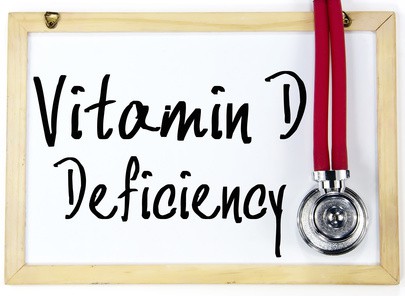Why Mom Got Alzheimer’s
There are many reasons why my mom got Alzheimer’s’ and I know one was Vitamin D. My mother’s diet was low in this vitamin and she didn’t get enough sunshine to active it. Today I am convinced it played a role in her mental decline. I think women naturally are lower in this supplement and the latest news around athletes who are deficient is impressive.
In The News
Vitamin D is getting a lot of press these days. The most interesting fact is that it’s really a hormone. It plays many roles in our lives helping us absorb calcium and maintain bone mass. This sounds great if you’re worried about aging and osteoporosis. Consider this though a study by the American Academy of Orthopedic Surgeons[1]; found that one-third of Division I college athletes have insufficient vitamin D.
Insufficient Vitamin D Leads To Injury and Weak Muscles
Are you injury prone? Do you have weak muscles or pain? Low levels of D play a role in musculoskeletal pain and injury too. This study notes that athletes are especially vulnerable. After running, I can get leg spasms a sure sign it’s time to check my levels. There are up to one billion people around the world with deficient vitamin D levels of all ages.
Knowing how much to take and if you have an inadequate amount is found through an easy blood spot test offered by our office. It’s more accurate than the typical blood test. Optimal levels of D are necessary. D is a fat soluble vitamin. This means it remains in the body for long intervals if given too much. It can cause high blood calcium levels leading to kidney stones. It leads to poor appetite, nausea, and vomiting.
The Risk of Low Vitamin D Affects All People
Not only athletes and older people are at risk when it comes to deficiencies. If you play sports, lift heavy weights or work in a career that involves heavy lifting check your levels. Even the weekend warriors need to keep their vitamin D in balance.
These Five Reasons Are Why You Want To Ask About The Blood Spot Test Right Away
- Your Immunity
D works in a special way it stimulates your immune system to produce cathelicidins that kill viruses. Cathelicidins are small, cationic, antimicrobial peptides found in humans. They serve a critical role in mammalian [mammals] innate immune defense against invasive bacterial infection. Without adequate vitamin D, you are almost defenseless against cold and flu season. The sun activates D so it’s no wonder we get colds in winter if we don’t have this vital supplement in balance.
- Healthy Brain
According to The Alzheimer’s Research Center [2]Vitamin D deficiency decidedly escalates your risk of dementia and Alzheimer’s disease through both neurodegenerative and vascular mechanisms. Older people often lack enough sunshine and D; it’s also common for anyone in North America; we just don’t get adequate sunlight. It is associated with an increased risk of stroke too. Your risk of Alzheimer’s disease doubles every 5 years after the age of 65.
Something called a Telomere[3], is an essential part of human cells that affect how our cells age. Remember D is a hormone it affects many genetic pathways in the human body and is linked to chronic disease especially those with inflammation. When our body has a disease such as arthritis, for instance, this vitamin is especially important in reducing the inflammatory process which speeds aging. Telomeres and this supplement work together to slow the aging process in your body and mind by healthy cell regeneration.
- Optimize Your Testosterone
D is an anabolic hormone and research suggests it helps testosterone and maximum muscle mass and synthesis. Studies show that if you exercise, your testosterone levels increase. In women though this may reduce body mass index. Other research links low testosterone in women which lead to atherosclerosis and obesity[4]. Without this vitamin, testosterone can affect muscles, your arteries, and weight gain.
- Everyone’s Worst Enemy Inflammation
Whether you’re young or old inflammation is your worst enemy. It ages you, it is a signal that if left unchecked in chronic conditions that something is wrong. The athlete with inflammation suffers soreness and fatigue when acute. Regular exercise reduces inflammatory reactions when combined with an anti-inflammatory diet. There is a balance here with both of these support systems. Foods like wild salmon, papaya, blueberries, broccoli, avocados, and cranberries, even ginger reduce inflammation in the body. Proper amounts of the right fitness are needed to stop inflammation.
Vitamin D And Inflammation
If this isn’t enough to stimulate your interest in making sure you have enough Vitamin D then do it because others love you and want to enjoy life with you!
Taking supplements though isn’t running down to your local bulk store, grocery store, or health food store. Many of these are derived from less than ideal sources. You can be wasting your money and still be deficient.
In the beginning, we use the blood spot test every 6 months until your levels are ideal. Some clients do better with certain forms such as a liquid. Using the incorrect quality, dose, or amount wastes money and your health.
Whether you chose to do the test or wish to start taking a higher quality D, we are here to assist you.
[1] http://newsroom.aaos.org/media-resources/news/more-than-one-third-of-division-i-college-athletes-may-have-low-vitamin-d-levels.htm
[2] http://www.alzheimersinfo.org/prevention.html
[3] https://www.tasciences.com/what-is-a-telomere/
[4] http://www.sciencecodex.com/low_t_not_just_in_males_testosterone_atherosclerosis_obesity_may_be_linked_in_females-154183





Trackbacks/Pingbacks